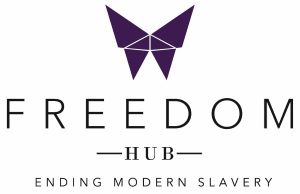It is day 15 of our 16 Days of Freedom, which means it’s also day 15 of the UN 16 Days of Activism Against Violence Against Women. It wouldn’t be right to finish this series without discussing the intersectionality between feminism, the fight for women, and the fight against the exploitation of women.
Women and girls
Across the world, women and girls are disproportionately affected by modern-day slavery, accounting for more than 70% of the estimated 45 million people living in modern slavery. Put another way, one in every 130 women across the world is living in modern slavery. Just so we understand the gravity of these numbers, let me phrase it like this:
There are more women and girls in modern slavery than there are people in Australia.
Reading that today and writing it for you now hit me in my gut. It seems impossible, but again, this is the reality for millions of women.
Modern slavery does affect everyone, men and women, but it is also a gendered issue. It’s an issue that requires us to acknowledge the intersection between feminism and the anti-slavery movement.
The role of gender
According to a report released by Walk Free, women account for 99% of victims of sexual exploitation, 84% of victims of forced marriage, and 58% of victims of forced labour. A pivotal piece to manipulating and exploiting vulnerable women and girls is power imbalances.
Unfortunately for women and girls, the power imbalance is exacerbated by gender inequality and discrimination. Sexism and discrimination are so embedded in the fabric and make-up of our lives that we may be completely unaware of them. Things such as laws and social norms, the expectations put on girls and daughters compared to boys and sons, and access to education are some of the ways gender inequality rears its head. In most countries, women are more likely to end up in poverty and work in high-risk sectors of the “informal economy.” These types of vulnerabilities are what traffickers and exploiters look for.
Three ways forward
One of the ways we can fight for women and girls is to push our governments to do more when it comes to criminalising all forms of slavery. According to Walk Free, only 52 countries have criminalised forced marriage (of which 84% of victims are girls). If you read our blog about forced marriage, you’d know that it’s the most common form of slavery in Australia. Governments across the world, not just in Australia, need to reform and overturn laws, policies, and procedures that strip women of their rights or amplify their vulnerability to sexual violence, manipulation, and exploitation.
A second way forward is to demand businesses prioritise supply chain transparency over profit. As consumers, we have to make sure that workers are protected.
Culturally, we also have a responsibility. The third way we can work together, as feminists and as people fighting against modern slavery, is to hold our friends and family accountable for their language and actions towards women. The way we look at, speak about and to, and treat any woman, especially vulnerable women, needs to be challenged.
The Freedom Hub’s role
Our founder and CEO, Sally Irwin, sits on various State, National, Pacific Regional and International Modern Slavery Committees to ensure that, as an organisation, we are part of the answer.
“I believe we could easily be the first country in the world to have no slavery, but we should also be doing all we can as a nation to help our poorer neighbouring nations. We have the wealth and resources to do a lot more. We have played a major part in exploiting these nations in the past and present, so we should be helping now in their time of need.” Sally Irwin CEO
Join Our Team
Help raise awareness and join our local volunteer team; contact us here.
Or, if you’d like to opt into our monthly newsletter, opt in here.
If you would like to support our work, you can donate here.
You can join our High Tea for Human Rights in Waterloo, Sydney, by clicking HERE.
You can Host your own High Tea by emailing [email protected], and we will send you information and a fact sheet to read or distribute to your guests.
THANK YOU FOR TAKING THE TIME TO READ OUR BLOG (Please review it or share it with others)




